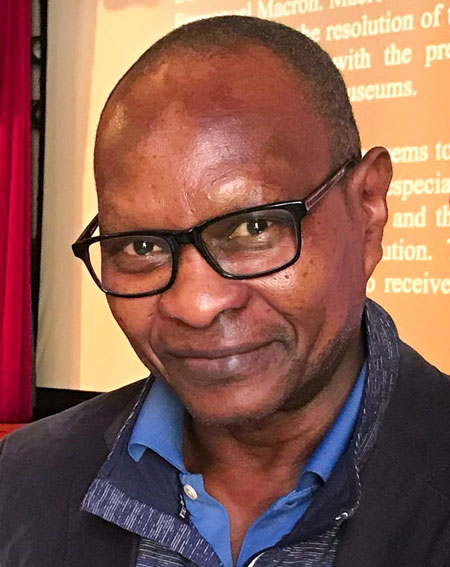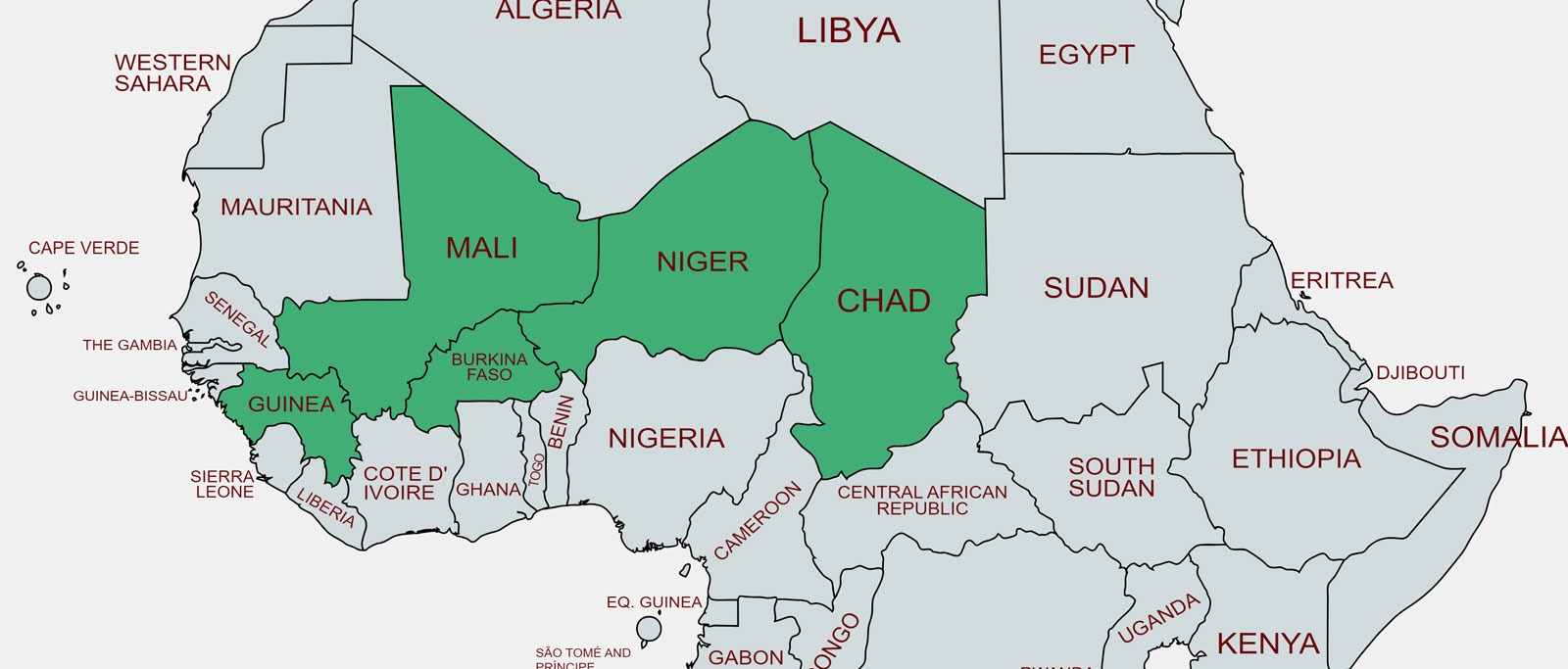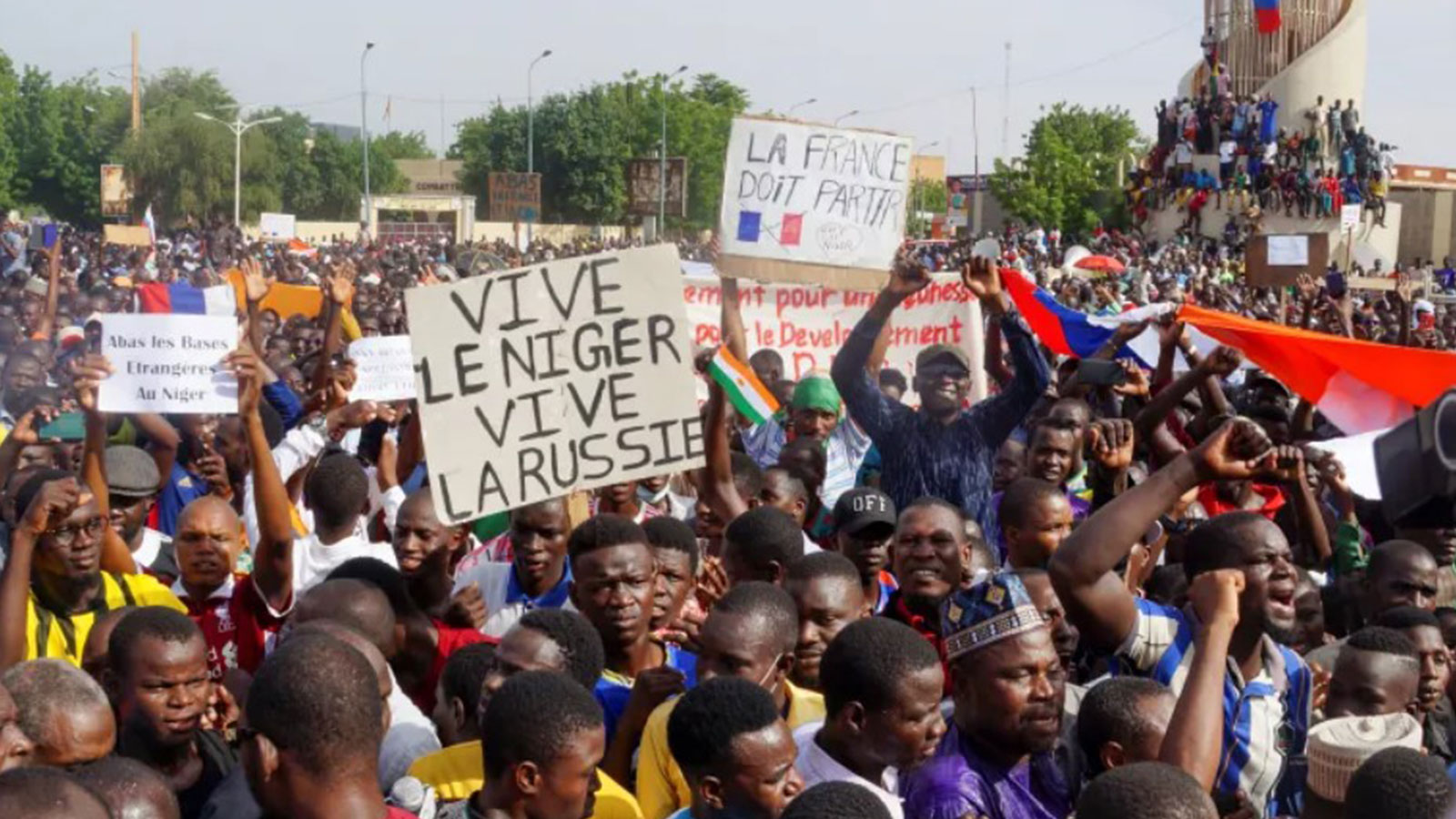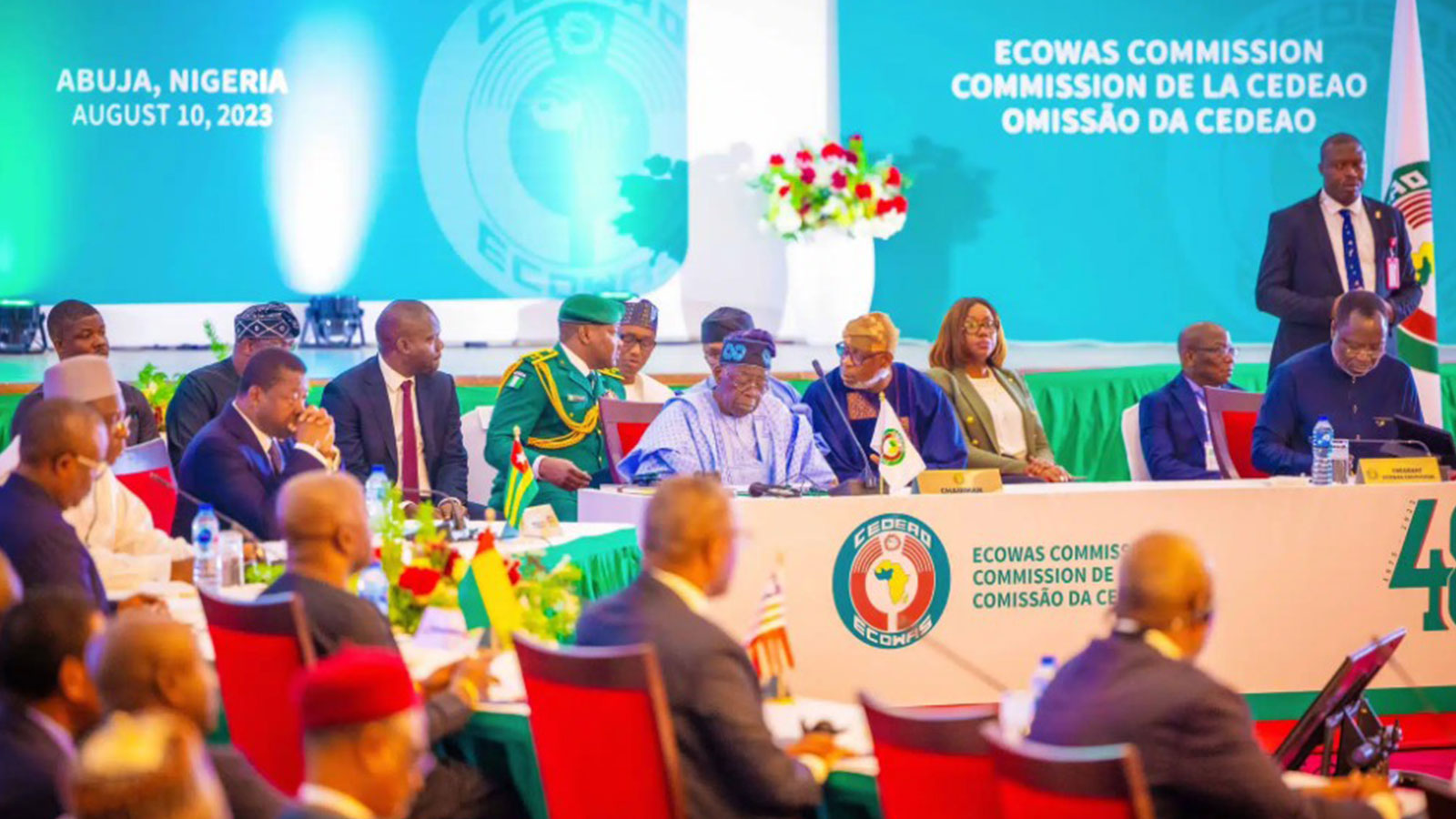
Mamadou Niang
Niger’s President, Mohamed Bazoum, was overthrown on July 26, 2023, by elements of his presidential guard. Their commander, General Tiani, was declared the head of state on July 28th after successfully garnering support from the rest of the army. ECOWAS (the Economic Community of West African States) intends to reinstate Mohamed Bazoum to his position and is considering “all options,” including military intervention. It is believed that the reason behind the putsch is a feud between the President and the General, who is alleged to have acted to preempt his dismissal.
It is unusual for a coup d’État in Africa to grab global headlines, galvanize Western political centers for days and weeks, and for the 15-member African Commission to discuss rallying their armies to reinstall a deposed President.
There are several reasons to explain why this moment is different:
Niger is an important geostrategic mass of 490.000 square miles, that’s almost twice as large as the state of Texas, it is rich in Uranium abundantly coveted by Europeans for their nuclear power plants, and it is a convenient base for anti-terrorist activities for the United States and France. Niger has long been a key ally of Western countries against Islamist insurgencies in West Africa’s Sahel region; it hosts a number of foreign troops. And following coups in neighboring Mali and Burkina Faso, those numbers have increased over the past two years.
For the fifteen West African heads of state of ECOWAS, it is one nightmare too many after a succession of 4 putsches in MALI in August 2020; and another in May 2021, still in MALI; in CHAD, April 2021; in GUINEA in September 2021; in BURKINA FASO, in January 2022, and on July 26, 2023 in NIGER.

The “Coup Belt”: Guinea, Mali, Burkina-Faso, Niger, Chad – Mapchart
Except for the country of Guinea, all four other territories share this large strip of land, running West from Mauritania, along the Sahara desert to East to Sudan. What they also share is a history of French colonialism. Western countries have been watching this trend with alarm, and for France, the replacement of friendly democratically elected governments has demonstrated the waste of close to seven decades of post-independence strategy in Africa. French governments of every persuasion since Charles De Gaulle in the ’60s have hoped that by maintaining a batch of former colonies tightly within the fold as its economic and diplomatic clients, Paris would reap the dividends of aggrandizement on the world stage along with preferential trade, exclusive licenses for unequal markets. The special relationship between France and French speaking African nations, dubbed “Françafrique”, has remained largely unchanged since it was imagined by the same former French president General Charles De Gaulle, just before France granted independence to its African colonies.
But Françafrique didn’t create the balkanization of Africa. We probably need to go back to the Berlin Conference of 1884-1885 to understand the origin of Africa’s ills historically. The carving up of the continent, separating peoples, cultures, and communities along artificial borders of what have become nation-states, with zero viability of self-development. That is the genesis of Africa’s misery.
And for those of us who believe that Africa’s liberation can only come from Africans, we are watching in desperation the perverse replacement of failed Western anti-terrorism campaigns with Russian paramilitary mercenaries.
Wagner mercenary boss Yevgeny Prigozhin, who remains active despite leading a failed mutiny against the Russian army last month, has hailed Niger’s military coup as good news and made a pitch offering his fighters’ services. In Africa, the Wagner Group has found a fertile ecosystem to spread Russian influence, a private military company and mercenaries, committing gross human rights violations, plundering mining and natural resources, and terrorizing populations.
- Crowd in Niamey holding signs: long live Niger, Russia. France must leave.
- ECOWAS meeting in Lagos, Nigeria on August 10, 2023.
In countries where amidst coup d’états, rigged elections, and third terms, democratic dysfunctions are rampant, on a continent where a large portion of the youth, bewildered and without prospects, only sees emigration as a human solution.
African leaders have often fallen short of delivering substantial progress to their people, leading to a sense of disillusionment and frustration among their populations. Despite the rich potential and resources present on the continent, a significant number of leaders have struggled to effectively manage and utilize these assets for the betterment of their societies. Corruption, mismanagement, and a lack of transparency have hindered the allocation of resources to critical sectors such as education, healthcare, and infrastructure. As a result, many African nations continue to grapple with high levels of poverty, inadequate access to quality education and healthcare, and limited economic opportunities for their citizens.
And further, a tendency towards political repression and the prioritization of personal or factional interests over the welfare of the broader population have contributed to the failure of leadership in Africa. In some cases, leaders have clung to power through unconstitutional means, including altering constitutions to extend their terms in office. This undermines democratic processes, stifles political diversity, and erodes trust in institutions. The lack of effective checks and balances has allowed leaders to operate with impunity, often avoiding accountability for their actions. These leadership failures have not only hindered socio-economic progress but have also contributed to social unrest, political instability, and a sense of hopelessness among the people they are meant to serve.
An imperative for Africa lies in the emphasis on demilitarizing every facet of political, economic, social, and cultural life. A strategic approach involves establishing an integrated counterterrorism unit under ECOWAS, spanning across regions affected by these concerns. The essence of this proposition extends to the Common Market for Eastern and Southern Africa (COMESA) as well.”
Importantly, there needs to be a massive investment in conflict prevention, strengthening of mediation institutions, and civil and constitutional dialogue. A lasting democracy will not take root through the use of weapons of war. Africa is engaged in very long-term transformations. It will have to navigate them itself and with complete self-determination.
















